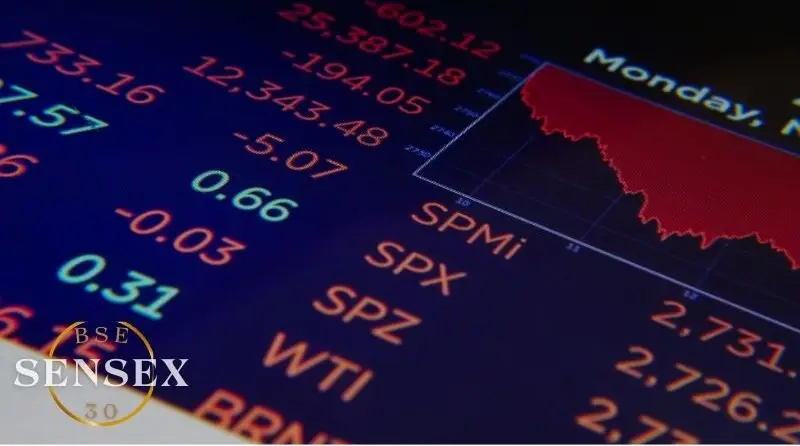Discover the vibrant and dynamic stock market in Thailand, a key player in the Southeast Asian economy. With its strategic location and growing industries, investing in Thai stocks can yield significant returns for savvy investors.
The Stock Exchange of Thailand (SET) is the main stock exchange where both local and international companies are listed. The SET Index is the primary benchmark index that tracks the performance of the top 100 companies listed on the exchange.
Another important index is the Market for Alternative Investment (MAI), which focuses on small and medium-sized enterprises seeking growth opportunities. This provides investors with a diverse range of investment options to choose from.
Stay ahead of the curve and explore the various opportunities that the Thai stock market has to offer. Whether you’re a seasoned investor or just starting out, Thailand’s stock market is definitely worth keeping an eye on.
How Does the Stock Market Work in Thailand
The stock market in Thailand operates similarly to other global stock markets. It is regulated by the Securities and Exchange Commission of Thailand (SEC) and the Stock Exchange of Thailand (SET). Investors can buy and sell stocks of publicly listed companies through brokerage firms or online trading platforms.
To invest in the stock market in Thailand, individuals need to open a brokerage account with a licensed broker. They can then place buy or sell orders for stocks listed on the SET. Investors can choose to invest in individual stocks, mutual funds, exchange-traded funds (ETFs), or other securities traded on the exchange.
Five major stocks that generate profit in the Thai stock market include:
- Ptt Public Company Limited (PTT)
- Advanced Info Service Public Company Limited (ADVANC)
- Siam Commercial Bank Public Company Limited (SCB)
- Krung Thai Bank Public Company Limited (KTB)
- Central Group (CENTEL)
Investors should conduct thorough research and analysis before investing in any stock to make informed decisions based on their financial goals and risk tolerance. It is also advisable to diversify investments across different sectors to mitigate risks associated with individual stocks or industries.
What is the benefits of buying stocks in Thailand
Investing in the Thailand stock market can be beneficial for several reasons. Firstly, the Thai stock market has shown consistent growth over the years, providing investors with opportunities for capital appreciation. Additionally, Thailand is a rapidly developing economy with a growing middle class and increasing consumer spending, which can lead to higher corporate profits and stock prices.
Furthermore, investing in Thai stocks can provide diversification benefits for a global investment portfolio. By adding exposure to emerging markets like Thailand, investors can reduce risk and potentially enhance returns through the performance of different sectors and industries.
When investing in the Thailand stock market, it is important to conduct thorough research on individual companies before making investment decisions. Understanding the political and economic environment in Thailand is also crucial, as these factors can impact stock prices and overall market performance.
Additionally, it is advisable to consider working with a reputable brokerage firm that has experience and expertise in trading Thai stocks. This can help investors navigate the complexities of the local market and make more informed investment choices.
In conclusion, investing in the Thailand stock market can be a rewarding opportunity for investors looking to diversify their portfolios and capitalize on the country’s economic growth potential. By following these tips and taking away key insights about the market, investors can make more informed decisions when buying stocks in Thailand.
The main stock indices in Thailand
The Stock Exchange of Thailand (SET) is the main stock exchange in Thailand where various securities are traded. The SET Index is the most important stock market index in Thailand, consisting of the top 50 listed companies on the exchange based on market capitalization.
Another important stock market index in Thailand is the Market for Alternative Investment (mai) Index, which tracks the performance of companies listed on the mai, a secondary trading platform for smaller and growing businesses.
Regulation of stock market indices in Thailand is overseen by the Securities and Exchange Commission (SEC). The SEC sets rules and regulations to ensure fair and transparent trading practices, as well as to protect investors from fraud and manipulation.
The Stock Exchange of Thailand also has its own set of rules and regulations governing the listing requirements for companies on the exchange, as well as trading practices for brokers and investors. These rules are designed to maintain market integrity and investor confidence.
Investors can use stock market indices as a benchmark to track the overall performance of a particular market or sector. They can also use indices to make investment decisions based on trends and patterns in the market. By understanding how stock market indices are regulated in Thailand, investors can have more confidence in their investment decisions.
Recap: The stock market in Thailand
The stock market in Thailand has shown steady growth in recent years, with a strong economy and stable political environment contributing to investor confidence.
Thai companies listed on the stock exchange have performed well, with many seeing increased profits and expanding their operations both domestically and internationally.
Foreign investors have also shown interest in the Thai stock market, attracted by the potential for high returns and opportunities for diversification.
Overall, the outlook for the stock market in Thailand remains positive, with experts predicting continued growth and investment opportunities for both domestic and foreign investors.




























































